Whether you are booking a quick wash or managing your subscription on a car wash app, your data is key to delivering a smooth experience of the app. But how safe is your personal and payment information? That’s where the car wash app security guide comes into play.
In this blog, we will walk you through the security measures integrated into the car wash app to ensure your customer data is always protected. From encryption to secure payment gateways, we will explore the essential tools and protocols designed to safeguard companies’ and customers’ information.
With a focus on transparency, our aim is to help you maintain a strong line of defense against potential threats. Let’s dive into the details of how to secure a car wash app in 2025.
Key Takeaways:
Car wash apps in 2025 are highly vulnerable to cyberattacks as they integrate payments, subscriptions, IoT devices, and customer data.
The cyber threats for car wash apps include ransomware, POS malware, API abuse, card testing fraud, and AI-powered bot attacks.
Core security features are AES-256 encryption, PCI DSS-compliant payment gateways, two-factor authentication, secure APIs, and real-time monitoring.
Compliance laws like GDPR, CPRA, and BIPA are non-negotiable, as they regulate how apps collect, store, and process sensitive customer data.
Selecting the right security partners and tools for APIs, payments, mobile hardening, and cloud compliance ensures customer trust and resilience.
Partnering with an experienced development company like JPLoft ensures your app is built with advanced security, compliance, and fraud-proof features.
Car Wash App Landscape: 2025 Market Snapshot
In 2025, the car wash industry is undergoing a transformation driven by digital innovation. Car wash apps nowadays have upgraded from just convenience to a tool for consumers seeking faster, more efficient ways to keep their vehicles in pristine condition. With the rise of subscription-based services, on-demand washes, and eco-friendly options, the market is evolving rapidly.
With the help of top on-demand app development services, the global car wash app market is expected to continue to grow, with growing consumer demand for convenience.
As demand grows, companies are optimizing apps to offer enhanced features like real-time location tracking, AI-powered scheduling, and secure payment options.
Here is a snapshot of key statistics shaping the car wash app market in 2025:
-
Grand View Research projects that the global market for car wash services will reach USD 45 billion by 2030.
-
According to Verified Market Research, the car wash app market is valued at USD 2.54 billion in 2024 and will reach USD 4.6 billion by 2031 at a CAGR of 5%.
-
It has been estimated by Verified Market Research that the average global CAGR for car wash apps is between 12.5% and 13.2% for the period 2026-2033.
-
North America represents the largest market for car wash service apps, with a CAGR of 10.5%, driven by high vehicle ownership, according to DataIntelo.
These statistics showcase the rapid evolution of the car wash app market as it embraces convenience, eco-friendliness, and cutting-edge technology.
This market growth also attracts new risks, making it essential to understand how to secure a car wash app in 2025 matters now more than ever.
Why Does Security Matter Now?
Advancements in mobile app development services have evolved car wash apps from booking tools into comprehensive digital platforms that manage payments and even IoT-enabled hardware. Making them a prime target for cyber attacks. The core reasons to secure an online car wash mobile app:
1. Rising Digital Adoption
Consumers now expect app-first experiences for car wash services. With features like one-click payment, location-based offers, and license plate recognition, these apps collect and process sensitive personal data, including contact details, payment information, and vehicle identifiers.
2. Integration with IoT and On-Site Hardware
Car wash apps developed like Washos integrate with IoT devices like ANPR (automatic number plate recognition) cameras and smart gates. If security is weak, attackers can exploit these connections to trigger free washes, manipulate systems remotely, or even cause operational downtime that affects both business and customer negatively.
3. Growing Fraud and Automation Risks
Bot-driven attacks and API exploitation are highly common. Criminals exploit business logic flaws to abuse promotional codes, run card-testing scams, or hijack loyalty wallets. This kind of fraud creates financial losses with damage to brand credibility among users and franchise partners.
4. Regulatory and Compliance Pressures
Data protection laws such as GDPR (EU), CPRA (California), and Brazil’s LGPD now impose stricter penalties for mishandling personal data like license plates or geolocation history. A compliance failure doesn’t just result in fines. It can also block a business from expanding into lucrative markets.
5. Customer Trust and Competitive Edge
The car wash app development industry is highly competitive. Providing services, customers are more likely to stick with apps that clearly demonstrate user safety through secure payments, transparent data policies, and fraud prevention measures. A single high-profile breach could send users directly to competitors.
The convergence of digital payments, IoT integration, and tightening data laws makes the car wash app security in 2025 more urgent than ever. Without proactive protection, businesses risk financial loss, compliance penalties, and long-term brand damage.
Understanding why security matters today sets the stage for recognizing the specific risks ahead. Let’s explore the evolving threat landscape that car wash apps will face in 2025.
Threat Landscape for Car Wash Apps in 2025
The threats to apps in 2025 are characterized by several cybersecurity risks and overlooked car wash app development challenges resulting from their reliance on digital and mobile technologies. The most common security threats to avoid in car wash app development are:
|
Breach/Attack |
Description |
|
Customer Data Breaches |
Car wash apps collect sensitive user data such as credit card details, personal information, and loyalty memberships. Breaches could lead to theft, fraud, and legal consequences. |
|
Ransomware Attacks |
Attackers can lock down apps or backend systems, demanding a ransom to restore access. This can halt app functionality, payment processing, and overall operation. |
|
POS and Payment System Vulnerabilities |
Point-of-sale systems integrated with the app are prime targets for cybercriminals aiming to intercept financial transactions or exploit outdated software. |
|
Privacy and Data Security |
Compliance with regulations like GDPR and CCPA demands secure encryption (e.g., AES-256) and secure communication (SSL certificates). Failure can lead to regulatory penalties and loss of user trust. |
|
Payment and API Security |
Integration with multiple payment gateways requires adherence to PCI-DSS standards, use of tokenization to protect sensitive data, and secure APIs to prevent breaches. |
|
Performance Under Load |
High demand can cause server overloads or crashes that can be exploited in denial-of-service or related attacks. |
|
Sophisticated AI-Enhanced Attacks |
Cyber threats are evolving with AI tools used by attackers to escalate the scale and sophistication of penetration attempts. |
These threats need proactive risk management with the help of the best AI app development company to safeguard customer trust, maintain regulatory compliance, and ensure uninterrupted service.
Understanding the evolving security threats to avoid in car wash app development is only the first step. Now it’s equally important to explore the essential security features your car wash app must include to defend against these risks and maintain customer trust.
Security Features Your App Must Include
Prioritizing a guide to car wash app security not only helps meet legal requirements but also provides a competitive advantage in the digital marketplace. Here is an elaboration on essential security car wash app features that must be included in 2025:
1] Strong Data Encryption
Implement advanced encryption algorithms like AES-256 to protect user data, such as personal details, payment information, and location, both during transmission and storage. This ensures data confidentiality and compliance with data protection regulations, reducing the risk of data breaches.
2] Secure Payment Gateways
Create a mobile app design that utilizes PCI-DSS compliant payment processors like Stripe or PayPal, incorporating tokenization to mask sensitive card details. This prevents data theft during transactions, mitigates fraud, and increases customer confidence by securing financial information effectively.
3] Two-Factor Authentication (2FA)
Enforce 2FA on user accounts, requiring an additional verification step like SMS codes or authentication apps beyond passwords. This significantly lowers the chances of unauthorized access even if credentials are compromised, enhancing overall account security.
4] Regular Security Audits and Penetration Testing
Carry out systematic vulnerability scans and penetration tests regularly to identify security weaknesses. Fixing these promptly through patches protects the app from hackers exploiting known vulnerabilities and keeps defenses up to date.
5] Secure APIs and Communication
Encrypt all app and server communications using SSL/TLS protocols and secure APIs against common exploits such as injection attacks. This maintains data integrity, prevents interception, and secure a car wash app interaction with the backend system.
6] Compliance with Privacy Regulations
Car wash app design that processes to comply with privacy laws like GDPR and CCPA by enforcing transparent data handling, providing user rights management, and securing personal information. This protects users and prevents costly legal penalties and reputational harm.
7] Real-Time Monitoring and Alerts
Deploy monitoring tools to detect unusual app activities or transactions instantly. Such rapid identification enables swift reactions to potential security incidents or fraudulent behavior, minimizing the impact of breaches or misuse.
These security features collectively ensure that your car wash app remains resilient against evolving cyber threats in 2025, safeguarding both business interests and customer trust. In the next section, we will explore how to secure a car wash app in simple steps effectively.
Steps to Secure a Car Wash App
Securing a car wash app requires a multi-layered approach that covers mobile applications, APIs, cloud infrastructure, payments, and on-site IoT devices.
Below are the essential steps to secure a car wash app every business should follow to build and maintain a resilient security posture:
Step 1. Protect App Code and Data Storage
Protect all communication with backend servers using secure authentication (OAuth 2.0), strict input validation, and rate limiting. Harden API endpoints to block injection attacks and other exploits, as APIs are often the primary attack vector.
Step 2. Secure the Mobile Application
Implement certificate pinning, jailbreak/root detection, and runtime protections to prevent reverse engineering or tampering. Use secure storage mechanisms (Keychain/Keystore) for tokens and sensitive data. Regularly conduct mobile app penetration testing to identify new vulnerabilities.
Step 3. Implement Strong Encryption
Follow the car wash app security guide to understand the use of end-to-end encryption like AES-256 to safeguard user and payment data, both during storage and transmission. Hire dedicated developers to employ TLS 1.3 for secure API communications, preventing interception or tampering of sensitive information.
Step 4. Adopt Robust Authentication
Create an app that integrates biometric authentication methods such as fingerprint, facial, or iris scans, along with multi-factor authentication (MFA). This approach dramatically reduces unauthorized account access and enhances both user trust and compliance.
Step 5. Harden APIs and Backend Systems
Enforce strong authentication and authorization at the object level (to prevent BOLA/IDOR attacks). Apply rate limiting and bot mitigation to login, signup, and promo redemption flows. Use API gateways and WAFs to block suspicious traffic and monitor anomalies. Protect all communication with backend servers using secure authentication (OAuth 2.0).
Step 6. Strengthen Payment and Fraud Defenses
One of the most important steps to secure a car wash app is to partner with PCI DSS 4.0–compliant payment gateways (Stripe, Adyen, and Braintree). Deploy 3DS 2.x authentication, tokenization, and velocity checks for high-risk transactions. Add AI-powered fraud detection to stop card testing, promo abuse, and loyalty point farming.
Step 7. Secure IoT Devices and Kiosks
Require mutual TLS for device-to-cloud communication and keep firmware updated. Lock physical enclosures of kiosks to prevent skimming or QR code tampering. Segment on-site networks to isolate IoT devices from office/admin systems.
Step 8. Protect Cloud Infrastructure
Use Cloud Security Posture Management (CSPM) to detect misconfigurations. Store API keys and credentials in a secrets manager instead of hardcoding them. Encrypt sensitive customer data (license plates, payment tokens, location history) both in transit and at rest.
Step 9. Use AI-Driven Threat Detection
Leverage AI in a car wash app as a security tool to monitor real-time user behavior, identify anomalies, and detect new fraud patterns. This proactive defense is crucial to stopping complex, automated attacks common in today’s threat landscape.
Step 10. Ensure Regulatory Compliance
Map data flows to comply with GDPR, CPRA, DPDP Act, LGPD, and PIPEDA. Maintain privacy-by-design practices, including consent management and data minimization. Regularly audit for compliance with payment and privacy frameworks.
Step 11. Minimize Permissions and Data Collection
Request only essential permissions from users, and collect the minimum amount of data required for app functionality. Periodically review permissions and data storage policies to comply with privacy laws and reduce breach impacts.
Step 12. Implement Continuous Monitoring and Incident Response.
Use SIEM/SOC tools to detect anomalies in real time. Monitor for spikes in OTP requests, promo redemptions, or license plate edits. Maintain an incident response plan to handle breaches, fraud, or ransomware quickly.
Step 13. Enforce Continuous Testing and Regular Updates
Hire experienced mobile app maintenance service providers to run regular penetration tests, vulnerability scans, and code reviews. Patch management should be automated, with immediate application of security updates to keep all components protected from known threats.
Step 14. Monitor, Log, and Educate
Implement secure logging and monitoring to detect suspicious activity, ensuring logs do not expose sensitive data. Train both developers and users on secure practices, such as strong password policies and recognizing phishing attacks.
By following these steps on how to secure a car wash app, providers can move beyond basic security and establish a proactive defense strategy. This shields customer data and payments and also ensures uninterrupted operations, compliance, and long-term customer trust.
While implementing strong mobile app security measures is essential to protect your car wash app, aligning those efforts with global compliance and regulatory frameworks is equally important to ensure legal protection, customer trust, and long-term scalability.
Car Wash App Compliance and Regulations to Know
Car wash apps handle sensitive data like customer names, phone numbers, addresses, vehicle license plates, payment details, and geolocation history. Any misstep in securing or processing this information can lead to penalties, loss of trust, and even restrictions on operating in certain markets. Below are the key car wash app compliance practices and regulatory frameworks that businesses must prioritize in 2025:
► General Data Protection Regulation (GDPR - European Union)
GDPR remains the gold standard for data privacy. If your car wash app serves EU users, you must obtain explicit consent before collecting personal data, limit the retention of license plate images, and give customers the option to exercise their "right to be forgotten."
► California Privacy Rights Act (CPRA - United States)
The CPRA enhances California’s consumer privacy protections under the CCPA. Apps must allow users to opt out of data sales/sharing, provide clear privacy notices, and maintain robust data protection impact assessments. License plate recognition (LPR/ANPR) systems are particularly sensitive under this law.
► Brazil’s General Data Protection Law (LGPD)
Brazil’s LGPD shares similarities with GDPR but applies uniquely to businesses processing Brazilian citizens’ data. Car wash apps need legal bases for data processing, transparent privacy policies, and incident reporting within defined timelines.
► Payment Card Industry Data Security Standard (PCI DSS 4.0)
Since car wash apps process payments, PCI DSS compliance is mandatory. The latest PCI DSS 4.0 (effective 2025) enforces stronger multi-factor authentication (MFA), continuous monitoring, and secure handling of payment tokens.
► Biometric Data Laws (BIPA - Illinois, USA)
If a car wash app or kiosk uses biometric authentication (like fingerprint or face ID for account access), compliance with laws like BIPA (Biometric Information Privacy Act) is required. This means obtaining explicit user consent, ensuring limited retention, and safeguarding biometric identifiers.
Why Compliance Matters for the Car Wash App
Wondering how compliance can help a car wash business grow, well here are the prime reasons:
-
Avoiding Fines & Penalties: Global regulators impose multi-million-dollar penalties for non-compliance.
-
Maintaining User Trust: Customers are increasingly aware of how their data is handled. Transparent policies and compliance certifications build loyalty.
-
Business Expansion: Non-compliance can restrict cross-border operations, especially when apps aim to scale internationally.
-
Security Alignment: Compliance often overlaps with best security practices, helping apps mitigate risks like fraud, data breaches, and IoT vulnerabilities.
Car wash app compliance practices are not just a legal necessity but also a strategic advantage and a trust builder for customers in 2025. By embedding GDPR, CPRA, PCI DSS, and other frameworks into their operations, businesses can scale confidently while protecting both customer data and their brand reputation.
While compliance frameworks set the foundation for secure operations, real-world cases reveal how overlooked vulnerabilities can still lead to costly breaches, highlighting why secure car wash apps in 2025 are critical.
Real-World Case Studies and What They Teach
Here are real-life cases of cyber fraud targeting car wash apps and digital car wash systems, along with lessons they provide for the industry:
A] Autobell car wash Data Breach, USA
Year: 2024
Incident: It exposed over 52,000 customers' and employees' data, such as names, addresses, Social Security numbers, driver’s licenses, financial, medical, and employment details. Hackers listed stolen data on a dark web leaks blog. They infiltrated Autobell’s systems for six days without detection.
Lesson Learned: Real-time threat monitoring, limiting the scope of personal data collected, and regularly auditing security controls help limit exposure and legal liability.
B] Splash Car Wash POS Malware, Connecticut (USA)
Year: 2025
Incident: Malware infiltrated Splash’s credit card systems, exposing information of at least 1,400 customers. All point-of-sale equipment had to be replaced, and federal authorities became involved in the ongoing investigation.
Lesson Learned: Never neglect POS software security or delay critical updates. Segregate payment processing and implement end-to-end encryption to protect transaction data.
C] Free-Wash Promo Exploitation, USA
Year: 2023
Incident: A car wash mobile app offering the first wash free for new users was attacked by scripted bots to generate hundreds of fake accounts using disposable emails and VoIP numbers. Attackers sold these free wash codes online for half the retail price, resulting in a loss of USD 25,000.
Lesson Learned: Implement bot detection, device fingerprinting, and promo abuse controls to prevent automated account farming.
D] Stolen Credit Card Testing via Car Wash App, Europe
Year: 2022
Incident: This company noticed a sudden surge in USD 1 basic wash purchases during off-hours. Investigation revealed the platform was being used for card testing fraud, where criminals validated stolen credit card numbers before selling them on the dark web. This led to high chargeback fees and bank penalties for the operator.
Lesson Learned: Deploy velocity checks, BIN monitoring, and 3DS 2.x authentication to block card testing attacks.
These cases highlight the necessity of the guide to car wash app security, as they are not just booking assistance apps. With the help of modern tech advancements, along with the right mobile app tech stack, these apps have features of payment and IoT, playing a huge role in building customer trust.
The next step is about understanding how the right security tools and trusted partners can help car wash businesses prevent such incidents and build long-term resilience.
Selecting Security Tools and Partners for Car Wash Apps
To secure an online car wash mobile app, practice secure coding, choose the right security tools, and find a trusted mobile app development companies in the USA for fraud prevention. Taking these strict measures can help prevent costly cyber incidents.
1. API and Application Security Tools
Car wash apps are API-driven, with endpoints handling bookings, payments, license plate lookups, and loyalty balances, making them the prime attack target.
-
Use API security gateways (e.g., Salt Security) to monitor traffic, enforce authentication, and block abnormal behavior.
-
Adopt Web Application Firewalls (WAFs) with bot mitigation to defend login, signup, and checkout flows from credential stuffing and promo abuse.
2. Fraud and Payment Security Partners
Fraud is a major risk in 2025, with card testing, chargeback fraud, and referral abuse hitting service apps.
-
Partner with fraud prevention platforms like Riskified for real-time risk scoring.
-
Ensure payment gateways are PCI DSS 4.0–compliant (e.g., Stripe) to handle sensitive cardholder data securely.
-
Implement 3DS 2.x and tokenization to minimize stolen card usage.
3. Cloud Security and Compliance Tools
Most car wash apps rely on cloud infrastructure to store user profiles, images, and transaction data.
-
Use Cloud Security Posture Management (CSPM) tools like Orca Security for real-time misconfiguration alerts.
-
Adopt Secrets Management (e.g., AWS Secrets Manager) to protect API keys and tokens.
-
Partner with compliance consultants to ensure adherence to laws.
4. Mobile App Security and Anti-Tampering Tools
Attackers often reverse-engineer mobile apps to extract secrets or bypass security checks.
-
Use RASP solutions like Guardsquare to protect against tampering, hooking, and reverse engineering.
-
Implement certificate pinning, jailbreak/root detection, and secure storage to protect customer data on devices.
-
Perform regular mobile app penetration testing with specialized partners.
5. Choosing the Right Security Partners
Beyond tools, car wash businesses need strategic partners to strengthen long-term security.
-
Along with proven industry expertise in mobility, fintech, and IoT security, partners chosen should have strong compliance track records.
-
Look for SOC-as-a-Service or Managed Detection & Response providers to cover 24/7 monitoring.
-
Security solutions must integrate seamlessly with payment gateways, cloud platforms, and IoT hardware.
Selecting the right security stack and partners ensures that a car wash app is not only compliant and resilient but also future-ready against evolving threats.
In the next section, we will go through proven best practices in the car wash app security guide that ensure the security of your app stays resilient and compliant against evolving threats in 2025 and beyond.
Best Practices to Secure a Car Wash App in 2025
The emergence of AI, blockchain for data integrity, and automated security solutions is forecast to strengthen defenses in the car wash app domain.
Here are a few top-level practices to secure a car wash app in 2025:
|
Security Measures |
Description |
|
Implement Strong Encryption |
Use end-to-end encryption (AES-256) to protect user data during storage and transmission, ensuring data confidentiality and compliance with privacy laws. |
|
Adopt Multi-Factor Authentication (MFA) |
Use biometric authentication, tokens, or authenticator apps to add an extra layer of security beyond passwords and reduce the risk of credential theft. |
|
Secure APIs and Backend Services |
Protect application programming interfaces against injection attacks, data leaks, and abuse by implementing OAuth 2.0, input validation, and rate limiting. |
|
Apply Zero Trust Architecture |
Continuously verify user identity, device compliance, and contextual information regardless of connectivity to restrict unauthorized access and lateral movement within systems. |
|
Conduct Regular Security Testing |
Perform penetration testing, vulnerability assessments, and code audits frequently to detect and fix car wash app security weaknesses proactively before exploitation. |
|
Enforce Role-Based Access Control (RBAC) |
Limit user permissions strictly based on roles and responsibilities to reduce exposure and prevent unauthorized access to sensitive functions or data. |
|
Use AI-Powered Threat Detection |
Build an AI app to deploy AI-driven monitoring tools that analyze behavior patterns and detect anomalies in real-time, allowing quick identification and mitigation of threats. |
|
Maintain Patch Management |
Keep all software, like operating systems, libraries, and third-party components, updated with security patches to close known vulnerabilities |
|
Data Minimization and Permission Control |
Collect only necessary data and request minimal app permissions to reduce privacy risks and comply with regulations like GDPR and CCPA. |
|
Educate Users and Staff |
Provide security awareness training on phishing, credential management, and secure app use, empowering users and employees to protect themselves against social engineering attacks. |
|
Prepare an Incident Response Plan |
Develop and regularly update the car wash mobile app security procedure for responding to security incidents, including detection, containment, communication, and recovery steps to minimize impact. |
|
Secure Payment Processing |
Use PCI-DSS compliant gateways with tokenization and encryption to protect financial transactions from cyber fraud and build customer trust. |
By following these best practices, developers and operators of car wash app security can defend against evolving cyber threats, protect user data, and ensure compliance with increasingly stringent security regulations in 2025.
Partner with JPLoft and Secure Your App
Partnering with JPLoft to secure and supercharge your car wash app in 2025. As an experienced development company, JPLoft builds feature-rich car wash solutions that combine convenience, seamless user experience, and advanced cybersecurity. From initial concept to development and post-launch security, our dedicated team ensures your app is tailored to your unique business model and growth goals.
JPLoft prioritizes security at every stage. With robust data encryption, secure payment gateways, and compliance with international standards like GDPR and PCI-DSS, your customers’ personal and financial information remains protected throughout every transaction. Our expertise extends to integrating AI-powered threat monitoring, scalable architecture, and secure cloud infrastructure for real-time defenses against cyber threats.
Whether you manage a single outlet or a multi-location operation, let JPLoft, an experienced car wash app development company, help your car wash business thrive with maximum customer trust and lasting protection from severe cyber threats in this competitive digital market.
Conclusion
As car wash apps transform into powerful digital platforms combining payments, IoT devices, loyalty programs, and consumer data, their security cannot be treated as an afterthought. The threat landscape in 2025 shows that attackers are not only exploiting technical vulnerabilities but also targeting business logic flaws, promo abuse, and on-site hardware.
By investing in API protection, fraud prevention, IoT safeguards, mobile app hardening, and cloud compliance, operators can build platforms that inspire customer confidence while scaling safely. Partnering with the right security companies and adopting proactive monitoring ensures resilience against evolving threats. In today's digital-first service economy, to secure a car wash app means protecting not just technology but also customer trust and long-term growth.
FAQs
To secure a car wash app, implement API protection, encrypt payments, use bot mitigation, secure IoT devices, and comply with data laws. Add fraud detection, mobile app hardening, and cloud security to safeguard customer data, operations, and brand trust.
Key threats include credential stuffing, promo abuse, API vulnerabilities (IDOR/BOLA), card testing fraud, QR code tampering at kiosks, and cloud misconfigurations that expose sensitive data.
Because they handle sensitive data like payments, license plates, and customer identities, car wash apps are attractive targets for fraud, API abuse, and data breaches. Strong security ensures customer trust and regulatory compliance.
Yes. Depending on the market, compliance may include GDPR (EU), CPRA (California), LGPD (Brazil), and PCI DSS 4.0 for payments. Compliance avoids penalties and builds customer reliability in the business.
Partners provide specialized tools for fraud detection, API protection, mobile app hardening, and compliance monitoring. They help businesses stay ahead of evolving cyber threats with 24/7 protection.





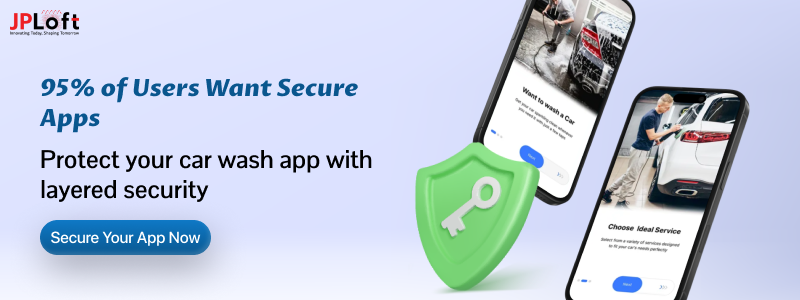
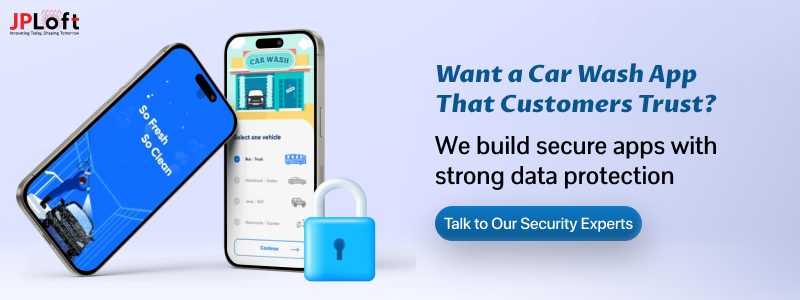

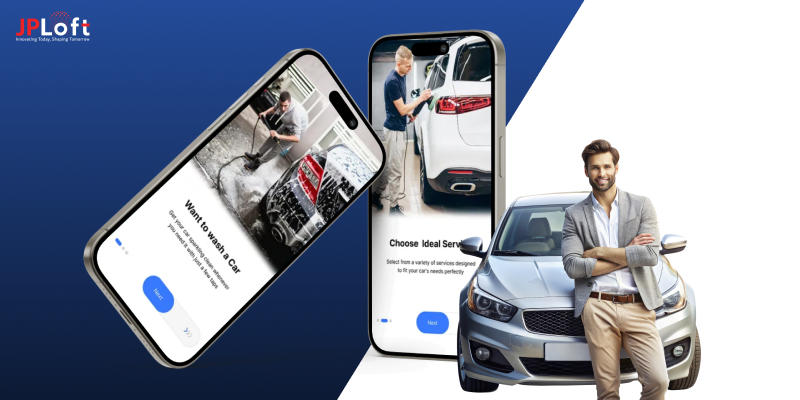
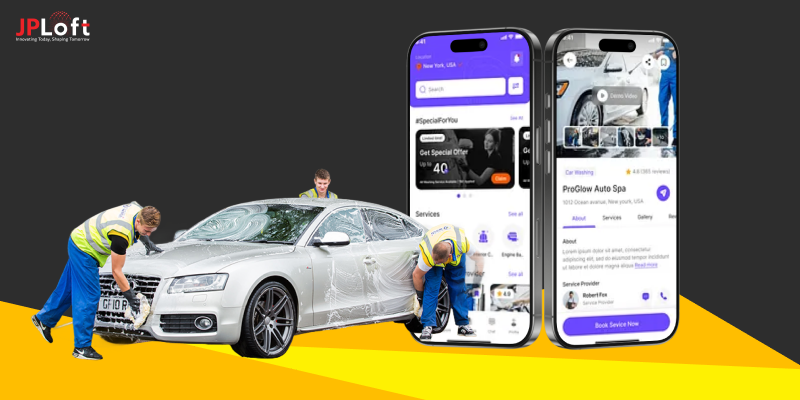
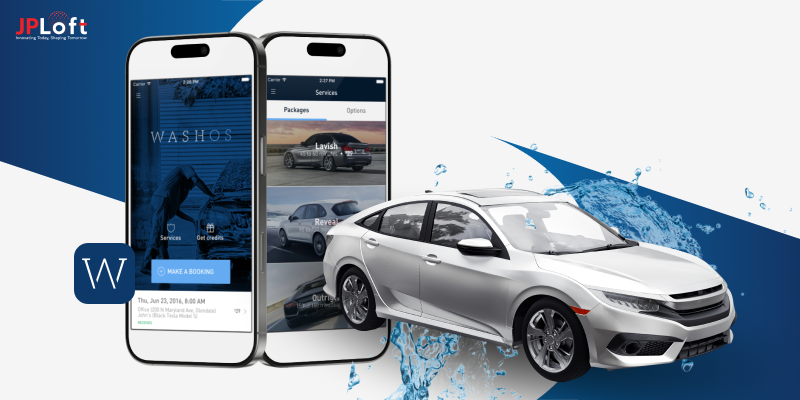


Share this blog